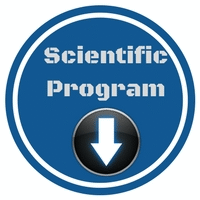Hytham E Shoura
AL-Azhar University, Egypt
Title: Isolation of mstn gene As A candidate gene of the muscles growth
Biography
Biography: Hytham E Shoura
Abstract
Myostatin is a transforming growth factor-b (TGF-b) family member that plays an essential role in regulating skeletal muscle growth. It is expressed initially in the myotome compartment of developing somites and continues to be expressed in the myogenic lineage throughout development and in adult animals. Individual muscles of myostatin null weigh approximately twice as much as those of wild type mice as a result of a combination of muscle fiber hyperplasia and hypertrophy. The myostatin sequence and function have been highly conserved through evolution . Remarkably, the human, rat, murine, porcine, goat, turkey, and chicken myostatin sequences are identical in the biologically active C-terminal portion of the molecule following the proteolytic processing site, , These findings have raised the possibility that pharmacological agents capable of blocking myostatin activity may have applications for promoting muscle growth in human disease settings as well as in livestock animals using gene therapy. our conducted study focused on isolating and identifying the Myostatin gene (MSTN) as a candidate gene of the muscles growth trait in the Egyptian goat breeds (zaraibi, baladi, Damascus), samples were obtained from the Egyptian National Gene Bank, three pairs of primers were designed to amplify MSTN gene, the sequences fragments were aligned with the NCBI database using BLASTN tool to find the high similar sequences, the results showed that there are high similarity between the sequenced fragments and Myostatin gene sequence of (sheep, bovine, camel, chicken, human)in the database, DNA fragments have been sequenced and submitted to the NCBI database under KY441464, KY463684, KY463685 and KY463686 accession numbers for MSTN gene partial sequences from Egyptian goat breeds.

